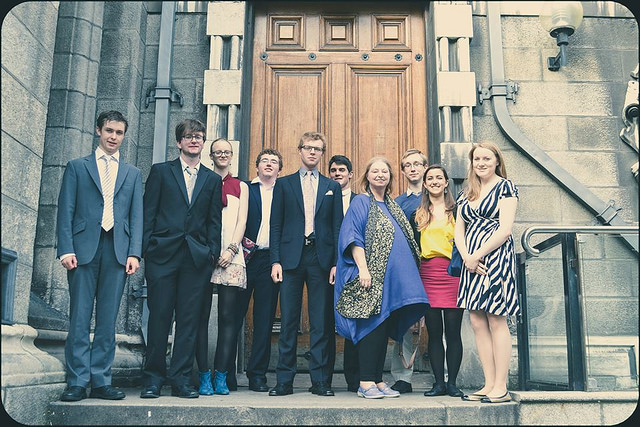Catherine O’Callaghan | Staff Writer
At a Private Business meeting last night the Hist implemented some of the measures demanded by its female members to tackle sexism within the society. Five female members had previously presented a list of demands to the committee, which were also publicly posted on Facebook. Yesterday evening Hist Auditor, Cormac McGuiness, made an Auditorial ruling to create the new position of Equity Officer and a gender quota was passed for a minimum of 40% female speakers at events, although it is hoped that this will increase to 50% if found to be feasible.
Current female members of the Hist had claimed that women on the committee have been experiencing sexism of varying degrees of severity. The signatories to the document explained to The University Times that the issues with sexism they have experienced are not exclusive to the Hist, and that debating generally is male-dominated, with a culture that favours males. They hope that by using gender quotas they will encourage more females to take part in debating and prevent the breeding of a misogynistic culture within the society.
The members who compiled the published document have stated that sexism has long existed within the society, but that this year in particular they felt that the issue had to be addressed. They claim that comments on what female members wear are not unusual, and have expressed their personal frustration at the tendency to dismiss females as being overly emotional when they display passion in debating. The signatories also highlighted the strong support they have received for their actions, both from current members of the College community and from previous members of the Hist, saying that many people have in fact expressed the view that it should have been done before.
Dee Courtney, Pro-Librarian for the society, stated that at the Private Meeting on Monday, when the demands were first presented and before the document was posted publicly, it was clear that their demands would be met. However, she defends the decision to post the document publicly, saying this was not done solely to pressure other members to follow through, but because this “was an issue for the whole society and members had a right to know.”
Fellow signatories also stated that they hoped that making the issue known publicly would reassure any other society members who felt that had been treated unfairly based on their gender that they were not alone in this, and that this would encourage these members to stay with the society as it improves.
While it was expressed by the signatories that the response to their demands has, for the most part, been admirable, they also said that there is a small minority of fellow members who haven’t accepted their own part in any wrongdoing. Naoise Dolan (Censor) attributes this partially to the simplification of misogyny when it is a topic for debate, when very obvious examples of sexism are used. Thus, she explained, it can be hard for those who have more subtly undermined a fellow member based on gender to recognise this action as sexist.
The members who have called for change hope that as their demands are implemented these more subtle forms of sexism will be eradicated, and in particular they hope that members will be more conscious of their own behaviour. Although they have certainly demanded a lot of real change, such as the quotas for female speakers, Alex Trant (Pro-Censor) explained that alternatives had already been attempted without success, and ultimately, she said, they want to be able to leave this session knowing that they have definitely made a positive difference.
Photo: The Hist







